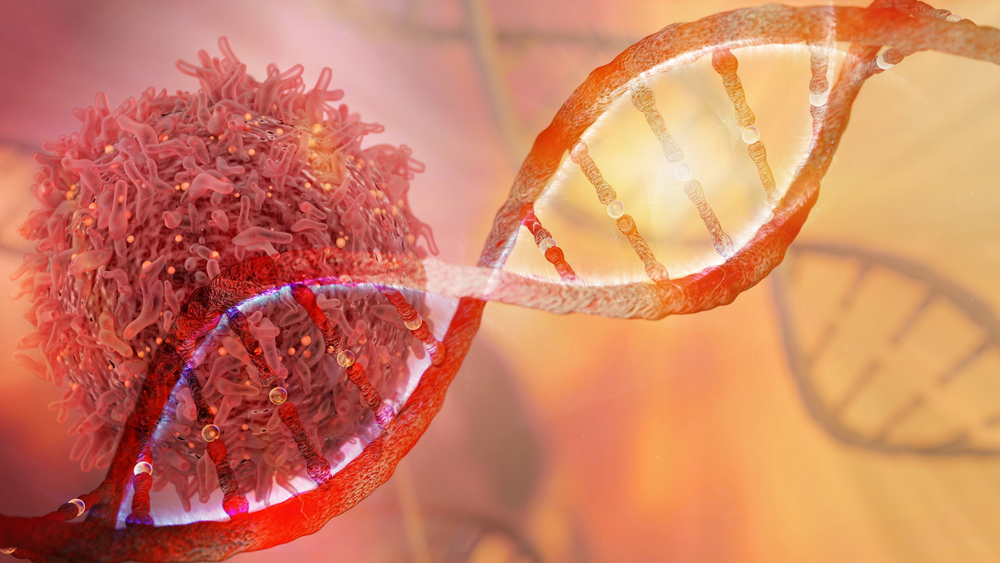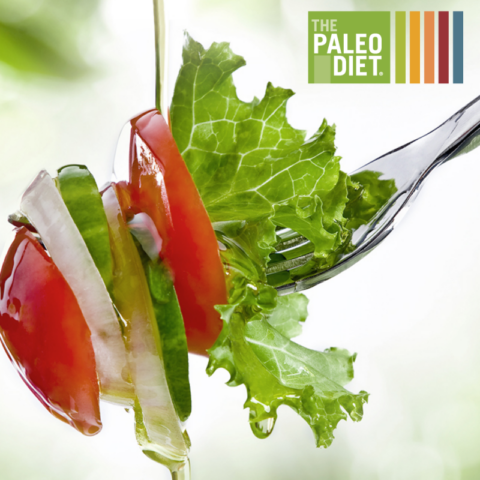Thomas Seyfried’s Metabolic Theory of Cancer and How The Paleo Diet Could Help Curtail the Disease

[This article discusses health improvements based, at least in part, on a ketogenic diet. Professor Loren Cordain and many others, including The Paleo Diet editorial review board, don’t recommend or endorse long-term ketogenic dieting for the general public. They do acknowledge that it can be effective if used short-term or as a therapeutic measure for cancer, Alzheimer’s, and other diseases.]
Despite billions of dollars and countless research hours, cancer still takes over 1,670 lives each day. [1] Ultra-modern “genetic” therapies and theories, along with debilitating radiation, chemotherapy, and surgical interventions have done little to reduce casualties in this protracted war.
Cancer has always existed as part of the human condition; it became widespread with the rise of Western civilization, [2] [3] along with diabetes and cardiovascular disease. Many carcinogens are well known—pollution, chemicals, tobacco, among others—but our complete understanding of the mechanism by which they destabilize healthy cells has remained elusive.
In his groundbreaking book,“Cancer as a Metabolic Disease: On the Origin, Management, and Prevention of Cancer,” Dr. Thomas Seyfried offers a comprehensive and penetrating examination of why current research (especially in genetics) misses the mark—and how basic cellular biology offers direct insight into both cause and treatment. [4]
His theory of impaired cellular respiration (which revisits the “Warburg Theory”) offers both an elegant explanation and reveals a surprising dietary connection. The theory postulates that cancer cells lose their ability to produce energy using oxygen and instead rely on fermentation. In other words, cancer cells have to rely almost exclusively on glucose for their energy, and dietary changes that severally reduce carbohydrate intake can effectively “starve” cancer cells.
Treat the cause, not the symptoms
In a recent presentation, Seyfried asked a question that alluded to his position that genetic cancer markers offer more insight into effect than cause [5]:
“Is it more logical to focus on the common problem that exists in all of the cells of the tumor, or does it make more sense to focus on the individual unique differences in every cell in that tumor?”
In other words, he ponders whether we should be fighting cancer cells on a specific cell-by-cell level, or on a more global, whole-system level, looking for the commonalities in the cancer cells?
Seyfried takes the latter approach, preferring to analyze what it is about the cancer cells that is causing the mutations.
By contract, the current “somatic mutation theory” takes the former approach. It is based on the idea that cancer starts with a single somatic cell that accumulates mutations. The approach catalogues genetic anomalies in an attempt to customize treatment based on a host of mutations.
While Seyfried’s approach may seem like common sense, it should be noted that for decades the medical profession, academia, institutional review boards, and regulators have all strongly favored the somatic mutation theory. Lack of treatment success has not prevented this theory from becoming an entrenched dogma—making genuine alternatives (like Seyfried’s update of the Warburg Theory) difficult to research or promote.
Multiple researchers including Seyfried’s team [6] have observed repeatedly (and reproducibly) that cancer cells appear to share a common characteristic: they no longer metabolize oxygen correctly for energy production. In other words, they are no longer able to produce energy aerobically. Instead, cellular mitochondria (unable to “breathe” using their normal process of oxidative phosphorylation) begin to produce energy by fermenting glucose and glutamine.
This dysfunction in the cancer cells also appears to help the cell evade programmed cell death (apoptosis)—the normal fate of unhealthy cells. Instead, fermentation produces reactive oxygen species, which promote uninhibited further mutation and cancer cell growth.
Experimental support
In a 2015 review, Seyfried details several experiments showing how this mitochondrial dysfunction may be at the center of cancer development. These novel experiments transferred nuclei (where the bulk of our DNA resides) between healthy and cancerous cells. [6]
The findings suggested that when the nucleus of a cancerous tumor cell is transplanted into a healthy cell with properly functioning mitochondria, the cell continues to divide and produce new healthy cells. That is, the genes within the cancerous nucleus do not produce new cancer cells.
However, when healthy nuclei are transplanted into a cancerous cell where mitochondria are already fermenting glucose/glutamine for energy, the new cell either dies or produces cancerous offspring. As Seyfried explains, “the mitochondria are calling the shots, not the nucleus.”
How cancer is transferred by mitochondria and rogue macrophages
Like zombies from a horror film, the death-proof, substrate-fermenting mitochondria in cancerous cells corrupt adjoining cells and tissue. In the worst-case scenarios, the mitochondrial dysfunction is transferred to different body locations—a process known as metastasis (or how cancer spreads). [7]
According to Seyfried, white blood cells called macrophages drive metastasis. Macrophages, workhorses of the immune system, travel throughout the body, freely entering and exiting the circulatory system. Under healthy conditions, they attack incipient cancer cells as they would any other microbial threat or infectious agent. Macrophages normally assimilate these invaders, digesting them to neutralize their harmful effects. However, in metastasis, the assimilating cancerous cytoplasm appears to “infect” the macrophage instead, converting its own energy production from oxidative to fermentation.
These infected, or “rogue” macrophages then travel to other parts of the body and, in their attempt to heal and stimulate growth, instead propagate dysregulated cell growth in other parts of the body.
Arresting fermentation is the key
The fermentation process underlying dysregulated cell growth relies on glucose—or in the absence of glucose, primarily on glutamine, the most abundant amino acid in the human body. Tumors thrive on glucose and glutamine. Cancer cells derive up to 95 percent of their energy by breaking down these two fuels through glycolysis and the Krebs cycle. [8] [9]
So, one way to “starve” a cancer cell is to inhibit these primitive (literally, pre-oxygen) metabolic pathways by removing their preferred fermentable fuels.
Seyfried points out that cancer cells cannot ferment ketone bodies, which are readily used for energy by healthy cells. Where ketone bodies are present, in the absence of glucose and glutamine, cancer cells literally starve, while healthy cells, which can survive on ketone bodies and fatty acids, continue to function normally. Tumors may shrink or even disappear.
Elevated ketone bodies are a hallmark of the “ketogenic diet.” A clinical version of this diet is integral to a multifaceted metabolic treatment that Seyfried calls “press-pulse” therapy. It should be noted that just “going keto” is not a cancer treatment. Medical supervision is required, and press-pulse also includes tailored administration of glucose- and glutamine suppressing drugs, hyperbaric oxygen treatment, and intensive stress management. [10]
Seyfried’s recommended ketogenic diet is “calorie restricted,” ideally preceded by three to five days of water fasting. Calories should be reduced to 30-40 percent of normal intake. The diet should consist mostly of fat (up to 80 percent of calories), along with protein. [10] The idea is to aggressively trigger and maintain therapeutic ketosis. It is not a lifestyle or dietary change one should make casually.
The inflammation connection: diet vs. disease
A common thread in Seyfried’s book, [11] papers, and many online presentations is that chronic systemic inflammation is recognized as a “carcinogen” along with many other more widely recognized culprits (chemicals, pollution, pesticides, tobacco smoke, etc.) Many have observed that cancer and other chronic diseases are relatively unknown in non-Western, pre-industrial, or Ancestral populations—and increase when these populations adopt the Western diet. [12-15]
The Western diet, which is heavy on sugars, carbohydrates, and industrial seed oils is widely recognized as pro-inflammatory and linked to many diseases besides cancer. [16-17] Chronically elevated blood glucose may actually contribute to cancer (inflammation damaging mitochondrial respiration) and encourage its growth (glucose-feeding tumor cells.)
Ancestral dietary approaches, which are naturally lower in carbohydrates—especially simple sugars—and based on nutrient-dense whole foods, can be just as anti-inflammatory as ketogenic dieting. While draconian calorie-restricted keto may be warranted as part of late-stage intervention and therapy, concerned dieters may find ancestral practices more sustainable over time.
Seyfried on the “standard of care”
While describing advantages and early successes [18] of “press-pulse” cancer therapy, Seyfried notes that practitioners must still also use conventional treatments like chemotherapy and radiation—despite their systemic toxicity and the possibility that they encourage new tumors even as old ones die off.
If these modalities (i.e. the current “standard of care”) aren’t included in a treatment plan, the physician may lose his or her license to practice medicine. So, while radiation and chemo may be counter-productive, not to mention debilitating to the patient, they will continue to be used in Western societies for some time. The hope is that this will not obscure the true effectiveness of “press-pulse” and other metabolic therapies, or even delay their implementation.
REFERENCES:
- “Cancer Statistics.” National Cancer Institute, 2 Apr. 2015, https://www.cancer.gov/about-c… Suggest That Cancer Is Purely Man-Made. https://medicalxpress.com/news/2010-10-scientists-cancer-purely-man-made.html. Accessed 18 Nov. 2019.
- “Earliest Human Cancer Found in 1.7-Million-Year-Old Bone.” National Geographic News, 28 July 2016, https://www.nationalgeographic.com/news/2016/07/oldest-human-cancer-disease-origins-tumor-fossil-science/.
- Seyfried, M.D., Thomas. Cancer as a Metabolic Disease: On the Origin, Management and Prevention of Cancer. 2012. First Edition, John Wiley and Sons Inc., Hoboken, New Jersey.
- Dr. Thomas Seyfried: Cancer as a Mitochondrial Metabolic Disease. https://www.crossfit.com/essentials/seyfried-2018-health-conference-video. See 16:35 mark
- Seyfried, Thomas N. “Cancer as a Mitochondrial Metabolic Disease.” Frontiers in Cell and Developmental Biology, vol. 3, July 2015. PubMed Central, doi:10.3389/fcell.2015.00043.
- Seyfried, pp. 215-241
- Seyfried/Crossfit video, see 17:05 mark
- Setfried, p. 50
- Seyfried, Thomas N., et al. “Press-Pulse: A Novel Therapeutic Strategy for the Metabolic Management of Cancer.” Nutrition & Metabolism, vol. 14, no. 1, Feb. 2017, p. 19. BioMed Central, doi:10.1186/s12986-017-0178-2.
- Seyfried, p. 181
- Mozaffarian, Dariush, et al. “Role of Government Policy in Nutrition—Barriers to and Opportunities for Healthier Eating.” BMJ, vol. 361, June 2018. www.bmj.com, doi:10.1136/bmj.k2426.
- Cummings, John H., and Sheila A. Bingham. “Diet and the Prevention of Cancer.” BMJ, vol. 317, no. 7173, Dec. 1998, pp. 1636–40. www.bmj.com, doi:10.1136/bmj.317.7173.1636.
- CLATICI, Victor Gabriel, et al. “Diseases of Civilization – Cancer, Diabetes, Obesity and Acne – the Implication of Milk, IGF-1 and MTORC1.” Mædica, vol. 13, no. 4, Dec. 2018, pp. 273–81. PubMed Central, doi:10.26574/maedica.2018.13.4.273
- “Global Cancer Hotspots: Burden of Disease Is Shifting to Developing World.” The Independent, 18 Dec. 2015, http://www.independent.co.uk/life-style/health-and-families/health-news/western-lifestyle-to-blame-for-growth-of-cancer-worldwide-new-data-suggests-a6777881.html.
- AG, BIOCOM. Western Diet Triggers Inflammatory Diseases. https://european-biotechnology.com/up-to-date/latest-news/news/western-diet-triggers-inflammatory-diseases.html. Accessed 18 Nov. 2019.
- Manzel, Arndt, et al. “Role of ‘Western Diet’ in Inflammatory Autoimmune Diseases.” Current Allergy and Asthma Reports, vol. 14, no. 1, Jan. 2014, p. 404. PubMed Central, doi:10.1007/s11882-013-0404-6.
- Seyfried/Crossfit, see 48:05 mark
David Whiteside
David Whiteside devotes his time to researching and promoting awareness of Paleo and ancestral dieting in the senior community.
More About The Author



